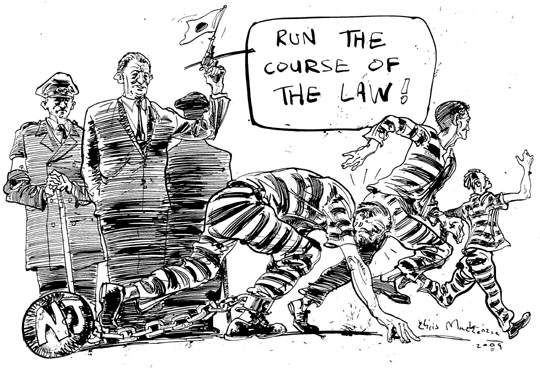Examine any justice system and patterns emerge. For example, consider how Japan's policing system treats non-Japanese. Zeit Gist has discussed numerous times (July 8, 2008; Feb. 20 and Nov. 13, 2007; May 24, 2005; Jan. 13, 2004; Oct. 7, 2003) how police target and racially profile foreigners under anticrime and antiterrorism campaigns.
But the bias goes beyond cops and into criminal prosecution, with Japanese courts treating suspects differently according to nationality. We've already tackled the subject of how judges discount testimony from foreigners (Zeit Gist, Aug. 14, 2007), but here's the emerging pattern: If you are a Japanese committing a crime toward a non-Japanese, you tend to get off lightly. Vice versa and you "haven't a Chinaman's chance," as it were.
For example, consider the Hiroshi Nozaki Case. In 2000, Nozaki was caught flushing a Filipino woman's body parts down a public toilet. However, he was not charged with murder — only with "abandoning a corpse" (shitai iki). That got him all of 3 1/2 years in jail. By 2008 he was stowing another dismembered Filipina corpse, that of Honiefaith Ratila Kamiosawa, in a train station locker.



